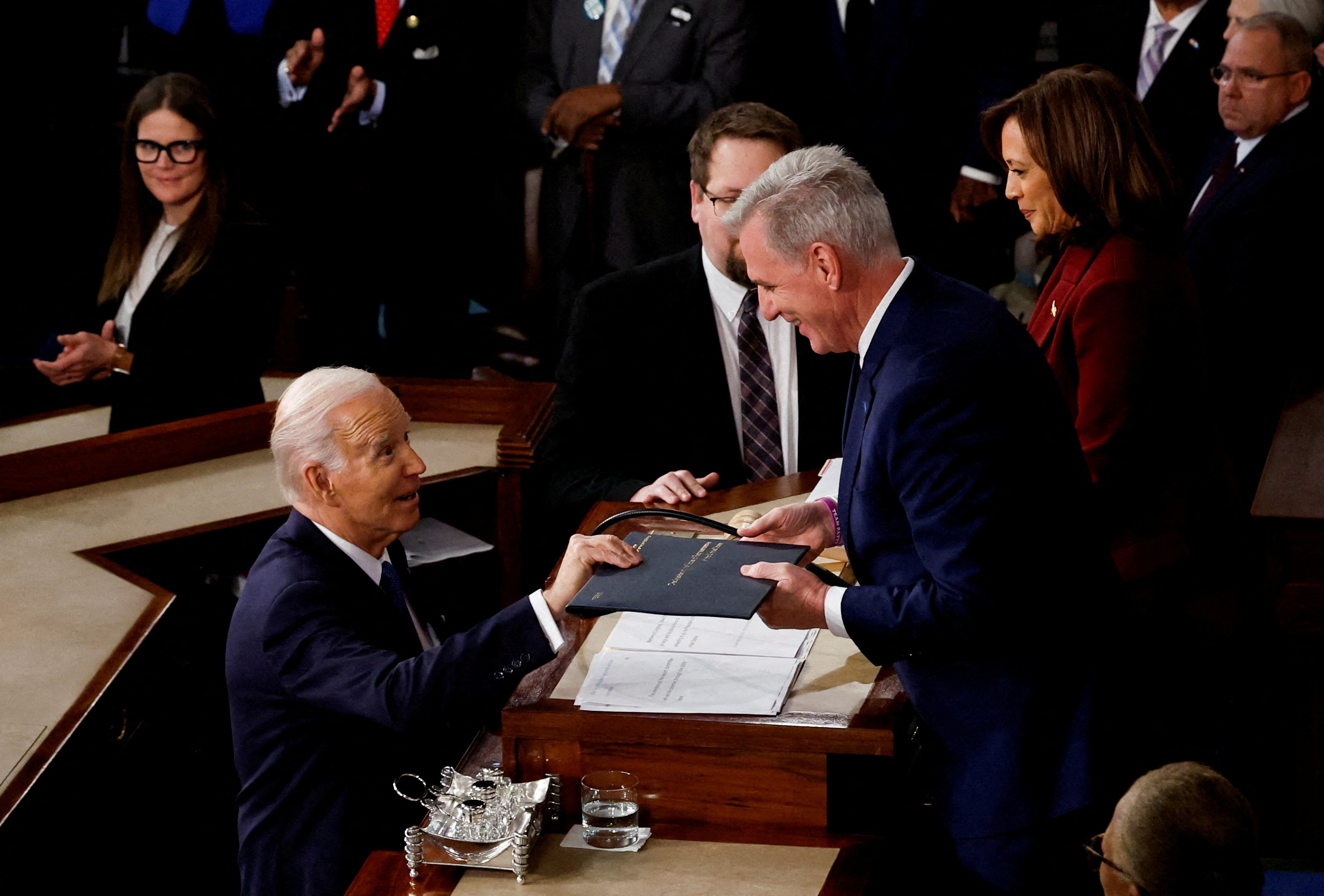As a potentially disastrous June default looms, US President Joe Biden meets with Republican House Speaker Kevin McCarthy and other congressional leaders at the White House on Tuesday afternoon for closed-door talks.
The meeting, which begins at 4 p.m. EDT (2000 GMT), is not expected to produce anything close to a final agreement on raising the debt limit, but it will be closely watched by global investors, US voters, and Washington lawmakers.
Reuters spoke with political strategists and advisers inside and outside the White House and Congress about potential outcomes from the meeting. They will be looking for the following:
WHO WILL BIDEN BRING?
Biden, McCarthy, Senate Democratic Majority Leader Chuck Schumer, Senate Minority Leader Mitch McConnell, and House Democratic Minority Leader Hakeem Jeffries are expected to attend the meeting.
They are not expected to bring any other lawmakers to the White House as invitees. Experts believe that the people Biden brings, whether Cabinet members like Treasury Secretary Janet Yellen or congressional experts like legislative affairs Director Louisa Terrell, will indicate what the president expects to accomplish during the meeting.
According to White House spokesperson Karine Jean-Pierre, the meeting will most likely include Biden and the four legislative leaders, but details may change.
The bottom line is that the fewer people there are, the more serious the president is about getting down to business.
WHEN THE NEXT MEETING IS
First meetings are “not super productive,” according to Rohit Kumar, co-leader of PwC’s national tax office in Washington and a former top McConnell aide who attended a number of Oval Office meetings. Participants instead tend to restate their public positions.
He stated that the most fruitful outcome would be a decision on how to proceed with negotiations. “…They name the individuals who will lead the negotiations for each side and decide who will make the first offer.” “And then you begin the actual process of negotiating, trading paper, or whatever you’re going to do,” he explained.

MCCARTHY, BIDEN’S TONE BEFORE AND AFTER
Biden and McCarthy have painted each other as stubborn, misguided, and, at times, dangerous ahead of their meeting on Tuesday.
Observers wonder if that tone will shift, as it did following McCarthy’s meeting with Biden in February.
Biden will speak to reporters at the start of the meeting, and it is customary for lawmakers to speak to reporters outside the Oval Office after high-profile gatherings.
Officials from the White House say they want this meeting to be more than just Washington Theater. They are unsure whether McCarthy will feel compelled to play to the conservative base and stand firm, or whether he will act as a flexible dealmaker seeking resolution.
Republicans in the House and Senate have repeatedly stated that they will not vote for Biden’s “clean” debt-ceiling increase.
BIDEN’S NEXT STEPS
On Wednesday, Biden will travel to New York’s Hudson Valley to press Republicans once more to pass a clean debt ceiling hike, highlighting that a House Republican plan would reduce veterans’ health care visits, school support staff, and Meals on Wheels for seniors.
The event will be held in a politically competitive region where Republicans gained ground in 2020, indicating that the White House believes Republican cuts are a winning issue for Democrats.
Biden is not expected to visit battleground states in the coming weeks, but he will travel to Asia for a diplomatic trip later this month. According to advisers, he may reconsider if he believes it will help increase pressure on McCarthy and Republicans.
MARKET PANIC?
The meeting is scheduled to begin shortly after the US stock market closes for the day.
That means that whatever news comes out of the talks won’t send US markets crashing, but Asian markets, which will be open, have historically moved in response to debt ceiling fears as well.
The market price of insurance against a US default has risen 157% since three months ago, with one-year credit default swaps trading 157% higher than three months ago. A strong market reaction to any post-meeting messaging would enrage investors and increase pressure on both sides to reach an agreement.


